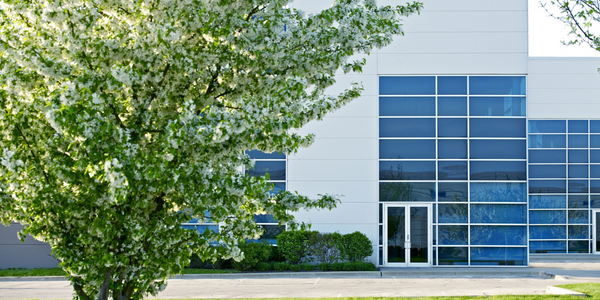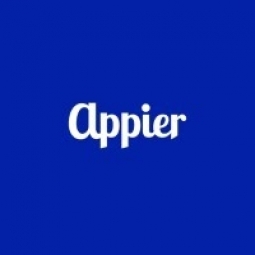Technology Category
- Cybersecurity & Privacy - Intrusion Detection
- Platform as a Service (PaaS) - Application Development Platforms
Applicable Industries
- Cement
- E-Commerce
Applicable Functions
- Procurement
- Sales & Marketing
Use Cases
- Behavior & Emotion Tracking
- Livestock Monitoring
Services
- Cloud Planning, Design & Implementation Services
- System Integration
About The Customer
AREA 02 is Taiwan's first sneaker trading platform, established in 2019. The platform combines a passion for fashion with the pursuit of an authentic experience. AREA 02 strives to make transactions in the sneaker market safer and to expand online services to the global market. It offers a secure purchasing platform for buyers and expedient sales opportunities for sellers through a rigorous selection process, a matchmaking mechanism, and a utility model patent authentication system. The platform has successfully accumulated over 220,000 members, making it the number one option for consumers to purchase sneakers and monitor the latest market trends.
The Challenge
AREA 02, Taiwan's first sneaker trading platform, was facing challenges in escalating its digital transformation. The company aimed to develop personalized multichannel marketing to increase conversion and expand business opportunities. They also wanted to build good customer relationships to increase member purchases. However, they were struggling to create a personalized customer journey based on users' behavior and preferences. The company was also looking to optimize its customer journey map for customer acquisition and provide personalized services to maintain customer interactions. The ultimate goal was to increase the annual growth in gross merchandise volume, return visit rate, and reduce customer acquisition costs.
The Solution
AREA 02 adopted Appier's AIQUA AI personalized marketing cloud solution to address these challenges. AIQUA provided one-stop services for personalized multichannel experiences, enabling AREA 02 to organize multichannel personalized marketing activities through the brand's official website, push notifications, e-mail, and SMS. The solution also encouraged customers to download the AREA 02 app and offered lucky draws and coupons over multiple channels to increase the speed at which customers placed orders. AREA 02 utilized automated A/B testing for website push notifications, optimized audience segmentation and event interactions, and used AIQUA to detect the products browsed by users and the products they put into their shopping cart. This triggered push notifications for products they may be interested in and automatically sent reminders to complete checking out. AREA 02 also designed the customer journey based on the behavior of new users to increase the number of new members and used the audience segmentation function of AIQUA to provide personalized information suitable for customer groups.
Operational Impact
Quantitative Benefit

Case Study missing?
Start adding your own!
Register with your work email and create a new case study profile for your business.
Related Case Studies.

Case Study
System 800xA at Indian Cement Plants
Chettinad Cement recognized that further efficiencies could be achieved in its cement manufacturing process. It looked to investing in comprehensive operational and control technologies to manage and derive productivity and energy efficiency gains from the assets on Line 2, their second plant in India.

Case Study
Digital Transformation of Atlanta Grout & Tile: An IoT Case Study
Atlanta Grout & Tile, a Tile, Stone & Grout restoration company based in Woodstock, Georgia, was facing challenges with its traditional business model. Despite steady growth over the years, the company was falling behind the web revolution and missing out on the opportunity to tap into a new consumer base. They were using independent software from different vendors for each of their department information and workforce management. This resulted in a lot of manual work on excel and the need to export/import data between different systems. This not only increased overhead costs but also slowed down their response to clients. The company also had to prepare numerous reports manually and lacked access to customer trends for effective business decision-making.

Case Study
IFFCO Boosts IT Performance and Innovates Agriculture with Oracle Cloud
Indian Farmers Fertiliser Cooperative Ltd. (IFFCO), the world’s largest manufacturer and marketer of fertilizers in the cooperative sector, was facing several challenges in its quest to innovate and improve the livelihood of farmers in India. The organization had recently launched a new product, nano urea, which brought new demands to IFFCO’s cloud computing needs. The organization needed a reliable cloud vendor to support the processes of 6–7 new manufacturing plants during the upcoming year, enhancing its production capability 300–350 million bottles of nano urea to meet increasing demand. IFFCO’s cloud adoption was driven by a need to innovate. The organization wanted capabilities for a dynamic business that can adapt to the changing needs of the market while growing fast. However, it was inhibited by rigid on-premises data center deployments and the overhead of maintaining legacy systems. IFFCO wanted to apply the elasticity and availability of cloud for improving overall performance of applications at lowest possible operational overhead. Lastly, IFFCO needed to provide the benefits of its technology to all its stakeholders, including employees, members, transporters, and farmers, some of whom have limited literacy. To accommodate all stakeholders, IFFCO wanted to add a voice interface to its applications.

Case Study
Revolutionizing Construction Equipment Rental: A Case Study on ProsRent and ENO8
ProsRent, a startup that won the 'Best Financial Opportunity' and 'Best Pitch' at CodeLaunch 2016, aimed to revolutionize the way construction professionals source and rent heavy equipment. In the construction industry, project managers and contractors typically rent heavy equipment from supply companies. However, predicting inventory can be challenging, and finding the required equipment at the right time and place can be a hassle. If the preferred vendor doesn't have the required equipment, it results in wasted time and money in searching for it, often leading to higher costs due to non-preferred rates and increased delivery costs if the vendor is located far from the job site. Suppliers, on the other hand, desired access to a wider base of trusted renters that they didn't have to vet themselves and wanted to offer dynamic rental pricing based on demand and availability in their market. ProsRent's challenge was to produce a minimum viable product that was fast and first to market but also strong enough to engender loyalty and repeat business from the target market.

Case Study
AI-based Automation for Commercial Office HVAC: A Verdigris Case Study
Modern buildings are required to run longer hours, support a variety of end uses, and contribute to higher levels of economic productivity, leaving a thin margin for error. However, even the most advanced building and environmental control systems have failed to adequately support facilities and operations management. Buildings are often inefficient and the people using them are underserved. To meet occupant comfort and maintain cost and energy efficiency, a dynamic, AI-assisted approach is needed.








